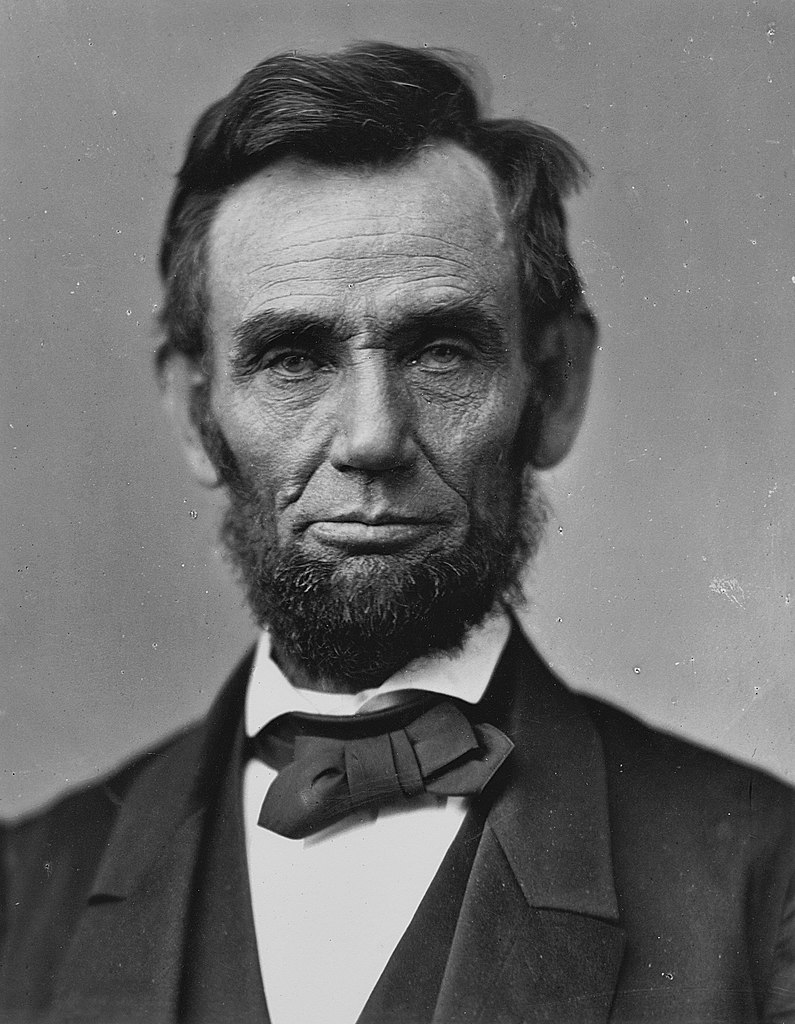More languages
More actions
(Mexican-American War) Tag: Visual edit |
(Homestead Act) Tag: Visual edit |
||
| Line 4: | Line 4: | ||
== Senate career == | == Senate career == | ||
In the 1840s, Lincoln criticized President [[James K. Polk|Polk]]'s | In the 1840s, Lincoln criticized President [[James K. Polk|Polk]]'s [[Mexican–Statesian War|invasion of Mexico]] and believed only [[United States Congress|Congress]] should have the power to declare war.<ref name=":022">{{Citation|author=[[Michael Parenti]]|year=2000|title=To Kill a Nation|chapter=NATO's War Crimes|page=117|pdf=https://leftychan.net/edu/src/1614706295182-3.pdf|publisher=Verso}}</ref> | ||
== Homestead Act == | |||
In 1862, Lincoln passed the Homestead Act, allowing [[Settler colonialism|settlers]] to claim 160 acres of land. They could get this land for free after five years or after six months if they paid and could get even more land with timber culture or desert land claims, which they did not have to live on. Most of this land went to land speculators or large landowners instead of individual families. The Morrill Act and Pacific Railroad Act also stole land from natives to establish universities and railroads.<ref name=":0">{{Citation|author=[[Roxanne Dunbar-Ortiz]]|year=2014|title=An Indigenous Peoples' History of the United States|chapter="Indian Country"|pdf=https://www.lcps.org/cms/lib/VA01000195/Centricity/Domain/10601/An%20Indigenous%20Peoples%20History%20of%20the%20United%20States%20Ortiz.pdf|city=Boston, Massachusetts|publisher=Beacon Press|isbn=9780807000403|page=140–1}}</ref> | |||
== References == | == References == | ||
Revision as of 12:32, 13 July 2023
Abraham Lincoln | |
|---|---|
 | |
| Born | February 12, 1809 Hodgenville, Kentucky, United States |
| Died | April 15, 1865 Washington, D.C., United States |
| Cause of death | Assassination |
| Political party | Whig (1834–1856) Republican (1856–1865) |
Abraham Lincoln (February 12, 1809 – April 5, 1865) was a Statesian politician who served as the 16th President of the United States from 1861 to 1865. He opposed slavery but did not believe in full equality for Black people.[1] Lincoln initially considered the Civil War a war against separatism and not slavery and allowed slavery to continue in states that did not secede.[2]
Senate career
In the 1840s, Lincoln criticized President Polk's invasion of Mexico and believed only Congress should have the power to declare war.[3]
Homestead Act
In 1862, Lincoln passed the Homestead Act, allowing settlers to claim 160 acres of land. They could get this land for free after five years or after six months if they paid and could get even more land with timber culture or desert land claims, which they did not have to live on. Most of this land went to land speculators or large landowners instead of individual families. The Morrill Act and Pacific Railroad Act also stole land from natives to establish universities and railroads.[4]
References
- ↑ Domenico Losurdo (2011). Liberalism: A Counter-History: 'Liberalism and Racial Slavery: A Unique Twin Birth' (p. 55). [PDF] Verso. ISBN 9781844676934 [LG]
- ↑ Domenico Losurdo (2011). Liberalism: A Counter-History: 'Crisis of the English and American Models' (p. 166). [PDF] Verso. ISBN 9781844676934 [LG]
- ↑ Michael Parenti (2000). To Kill a Nation: 'NATO's War Crimes' (p. 117). [PDF] Verso.
- ↑ Roxanne Dunbar-Ortiz (2014). An Indigenous Peoples' History of the United States: '"Indian Country"' (pp. 140–1). [PDF] Boston, Massachusetts: Beacon Press. ISBN 9780807000403
